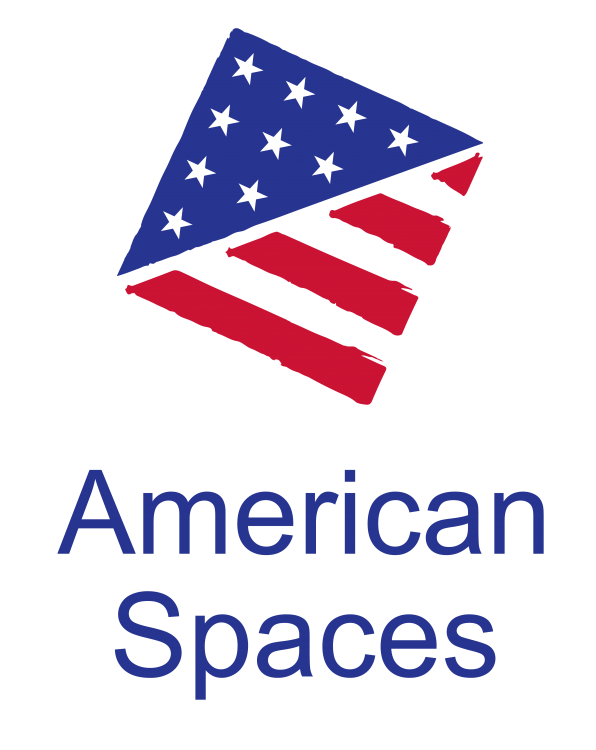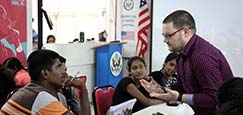MARTIN LUTHER KING JR. DAY
RESOURCE TOOLKIT FOR AMERICAN SPACES
This Resource Toolkit contains lesson plans, videos, photos, exhibits, and articles to be used at American Spaces to recognize the achievements by Martin Luther King.
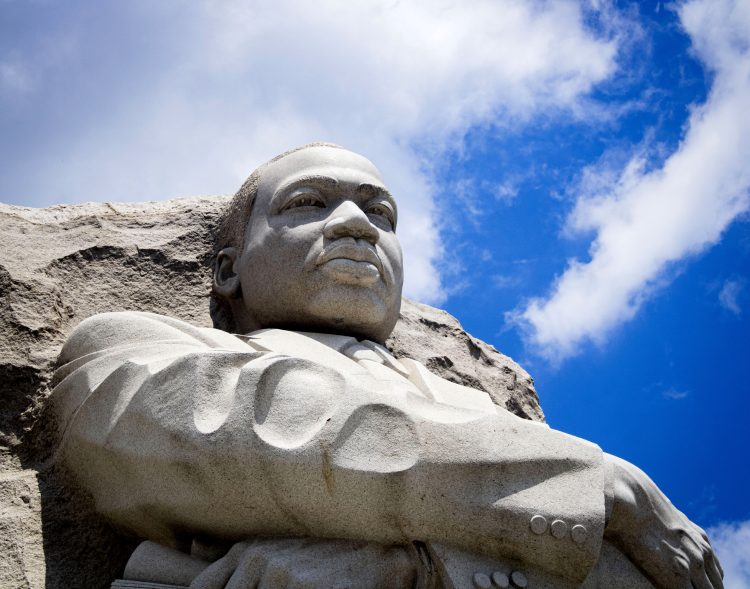
Photo Credit: NPS / Noah Greene
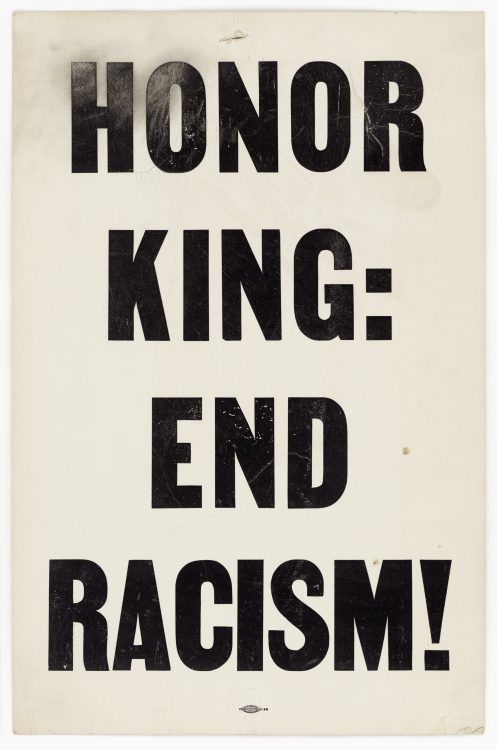
Photo Credit: Collection of the Smithsonian National Museum of African American History and Culture
FILMS*
Selma (2014) 2 hours 8 minutes – Chronicles Dr. Martin Luther King, Jr.’s campaign to secure equal voting rights with an epic march in 1965 from Selma to Montgomery, Alabama.
Our Friend, Martin (1999) 61 minutes – An animated film that introduces young people to Dr. King’s life and teachings through a time-traveling adventure.
KANOPY DOCUMENTARIES
Martin Luther King, Jr: I Have A Dream (2004) 23 minutes – This historical compilation features highlights of major speeches given by the Rev. Martin Luther King, Jr.
The Promised Land: 1967-68 (1990) 56 minutes – Martin Luther King stakes out new ground for himself and the rapidly fragmenting civil rights movement. One year before his death, he publicly opposes the war in Vietnam. His Southern Christian Leadership Conference (SCLC) embarks on an ambitious Poor People’s Campaign.
In Remembrance of Martin (1986) 57 minutes – Personal comments from family, friends, and advisors fill this remarkable documentary honoring Dr. Martin Luther King, Jr. Coretta Scott King joins the Reverend Ralph Abernathy, Julian Bond, Jimmy Carter, the Reverend Jesse Jackson, Senator Edward Kennedy, John Lewis, Bishop Desmond Tutu, and Andrew Young, who recall Dr. King’s career and trace his leadership in the civil rights movement. Includes portions of his “I Have a Dream” speech.
WHAT IS MARTIN LUTHER KING JR. DAY?
Martin Luther King Jr. Day, observed on the third Monday of January, honors the life and legacy of Dr. Martin Luther King Jr., a leader in the American civil rights movement. Legislation making Martin Luther King, Jr. Day a federal holiday in the United States was passed in 1983, and the first nationwide observance took place in 1986.
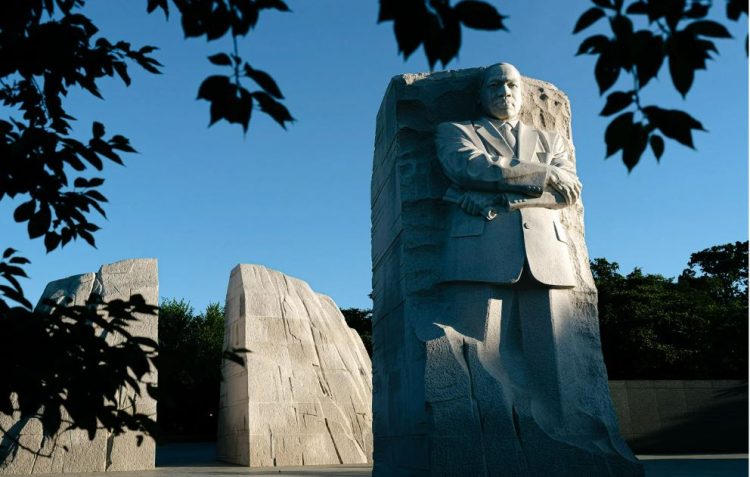
WHAT IS MARTIN LUTHER KING JR. DAY?
Dr. Martin Luther King Jr. was born on January 15, 1929, in Atlanta, Georgia. He was a Baptist minister and social activist who played a pivotal role in the American civil rights movement from the mid-1950s until his assassination in 1968. Dr. King is best known for his use of nonviolent civil disobedience based on his Christian beliefs and the teachings of Mahatma Gandhi.
Key Achievements and Contributions
- Montgomery Bus Boycott (1955-1956): Led a successful boycott that resulted in the desegregation of the Montgomery, Alabama, bus system.
- March on Washington (1963): Delivered his iconic “I Have a Dream” speech advocating for racial harmony and equality.
- Nobel Peace Prize (1964): Awarded for his efforts to combat racial inequality through nonviolent resistance.
- Selma to Montgomery Marches (1965): Played a key role in the marches that led to the passage of the Voting Rights Act of 1965.
OverDrive Books and Magazines
American Spaces have access to the OverDrive platform via eLibraryUSA. OverDrive features American fiction and non-fiction ebooks, as well as audiobooks and other tools that support the six pillars of American Spaces. The following resources related to Dr. King are available in OverDrive:
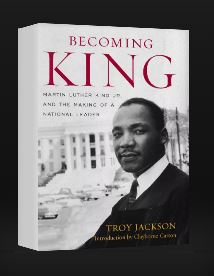
Becoming King – In Becoming King: Martin Luther King Jr. and the Making of a National Leader, author Troy Jackson chronicles King’s emergence and effectiveness as a civil rights leader by examining his relationship with the people of Montgomery, Alabama. Using the sharp lens of Montgomery’s struggle for racial equality to investigate King’s burgeoning leadership, Jackson explores King’s ability to connect with the educated and the unlettered, professionals and the working class. In particular, Jackson highlights King’s alliances with Jo Ann Robinson, a young English professor at Alabama State University; E. D. Nixon, a middle-aged Pullman porter and head of the local NAACP chapter; and Virginia Durr, a courageous white woman who bailed Rosa Parks out of jail after Parks refused to give up her bus seat to a white person.
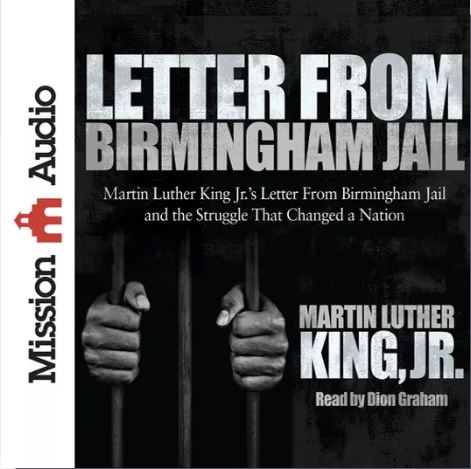
Letter from Birmingham Jail – April 16th, the year is 1963. Birmingham, Alabama, has had a spring of nonviolent protests known as the Birmingham Campaign, seeking to draw attention to the segregation against Blacks by the city government and downtown retailers. The organizers longed to create a nonviolent tension so severe that “the powers that would be” would be forced to address the rampant racism head on.
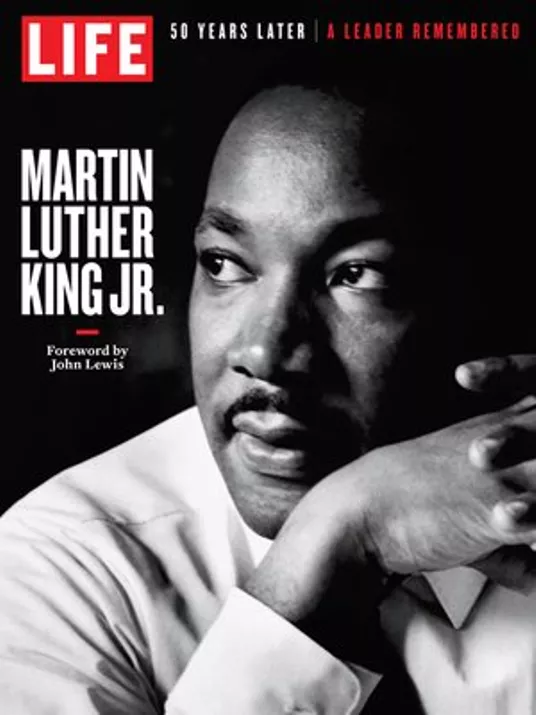
LIFE Martin Luther King Jr.
From the editors of LIFE Magazine, this collection of photos commemorates King’s life on the 50th anniversary of his death. Foreword by Congressman John Lewis.
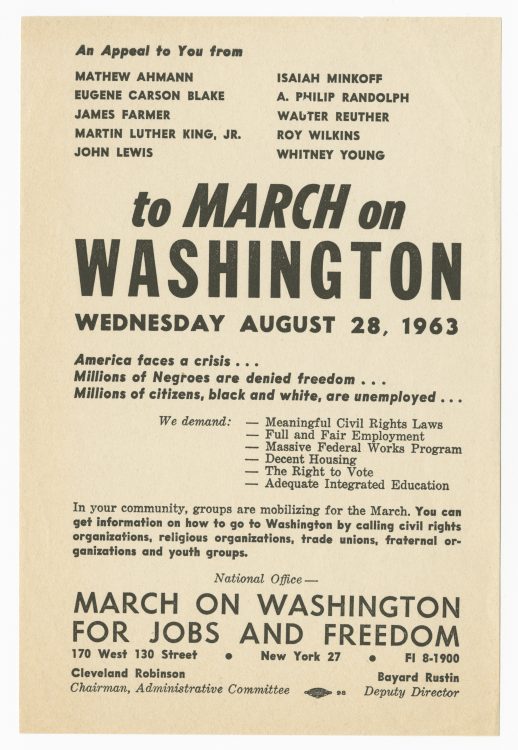
Collection of the Smithsonian National Museum of African American History and Culture
LESSON PLANS
You can find lesson plans from PBS Newshour classroom here that examine King’s impact on civil rights and his ongoing legacy. This video contains an excerpt of King’s 1964 Nobel Peace Prize acceptance speech.
Incorporate primary resources into your instruction, such as a virtual tour of Dr. King’s childhood home and documents and photos that require inferential thinking. For tips and suggestions for teaching with historical primary sources, see the Teaching Tolerance feature story “National Treasures.”
Nonviolent Resistance
Use these lesson plans from the National Endowment for the Humanities to introduce the concept of peaceful demonstration as a way to advance civil rights. Students will learn about nonviolent resistance, then debate its merits. Additional lesson plans explore Dr. King’s relationships with Malcolm X and Gandhi.
Justice and Action
King’s masterful “Letter From a Birmingham Jail” presents an opportunity to go beyond the most familiar King quotes and to do more critical analysis. For example, help students draw connections between his stance on nonviolent resistance and the number of times he was arrested and jailed. It’s also a great chance to compare King’s concept of justice with that of the clergy he addresses in the letter, including those he identifies as “white moderates.” Another consideration is to tie the systemic function of his jail time as a movement leader to that of Nelson Mandela, who was jailed for 27 years for leading a civil rights movement in South Africa.
Event Ideas
- Invite local civil rights activists and historians to discuss Dr. King’s legacy.
- Host a virtual panel with educators and students to discuss the relevance of Dr. King’s teachings today.
* Post may need to procure these films. Not all films are appropriate for all audiences. Coordinators should preview films before showing them. American Spaces have the right to screen Kanopy films (available through eLibraryUSA) at their Space as long as the film has public performance rights. Other films must be covered by the MPLC license. Here is more information on showing films at American Spaces.
The views expressed in these links and resources do not necessarily reflect those of the U.S. government.
Updated February 2025


